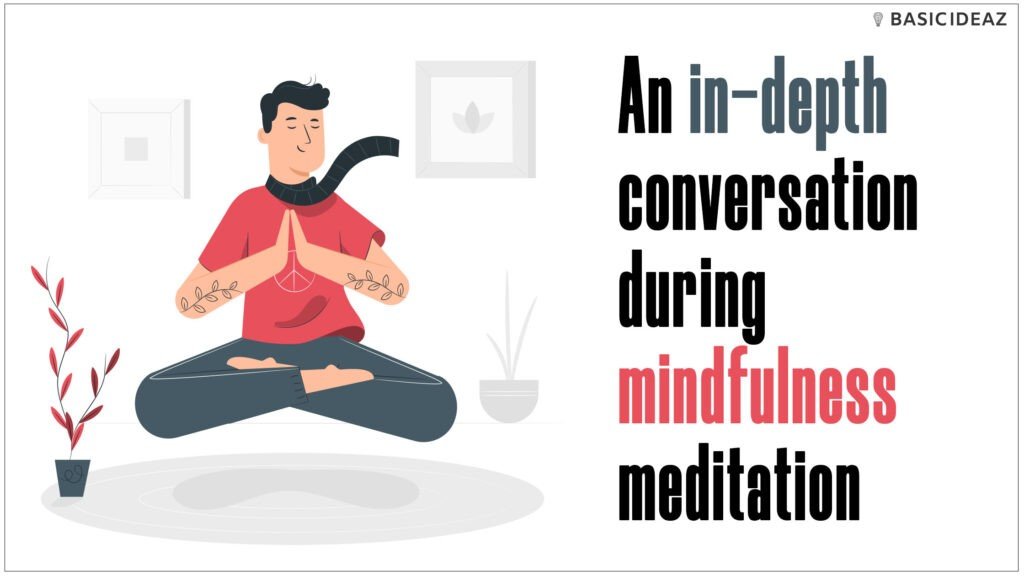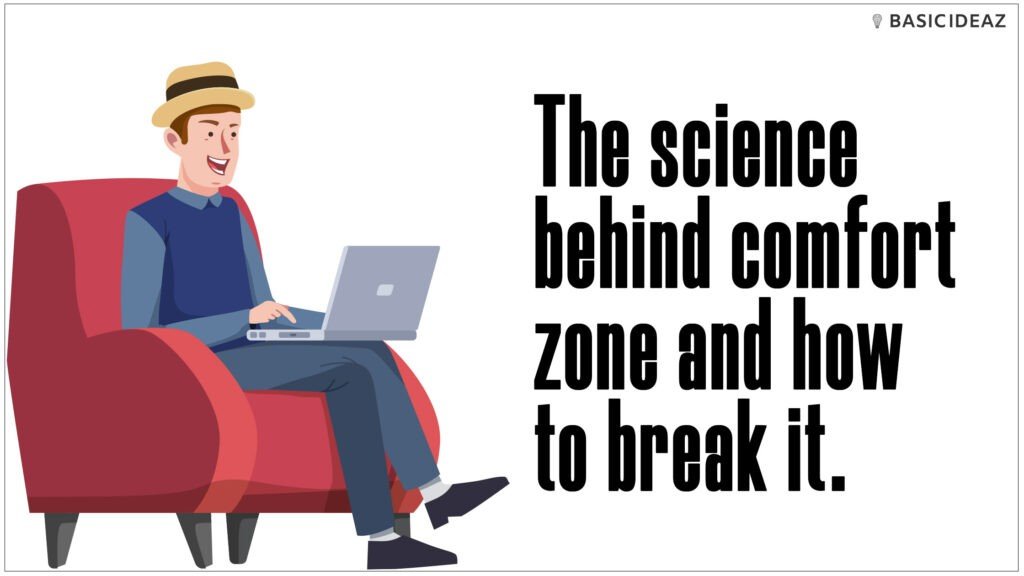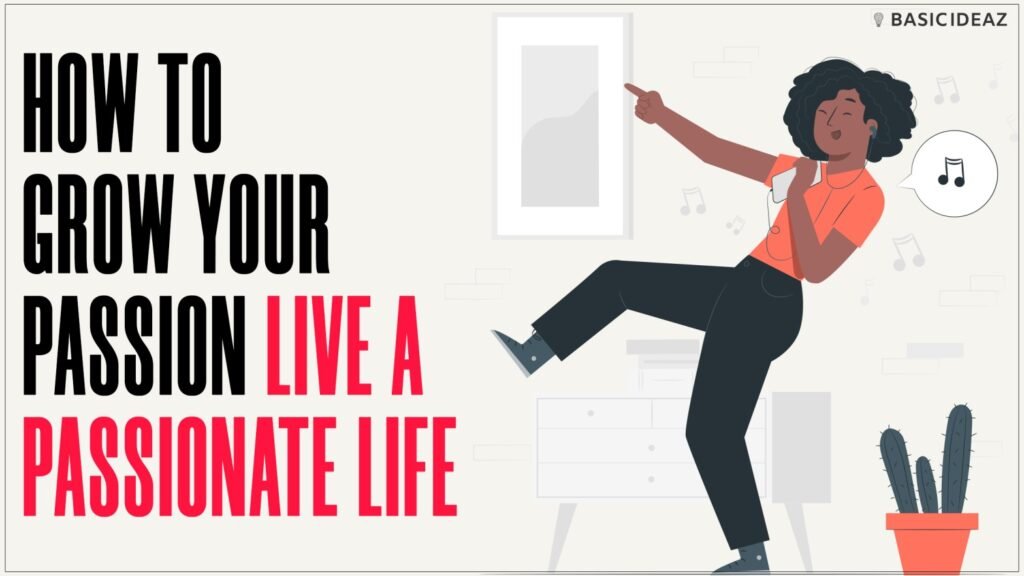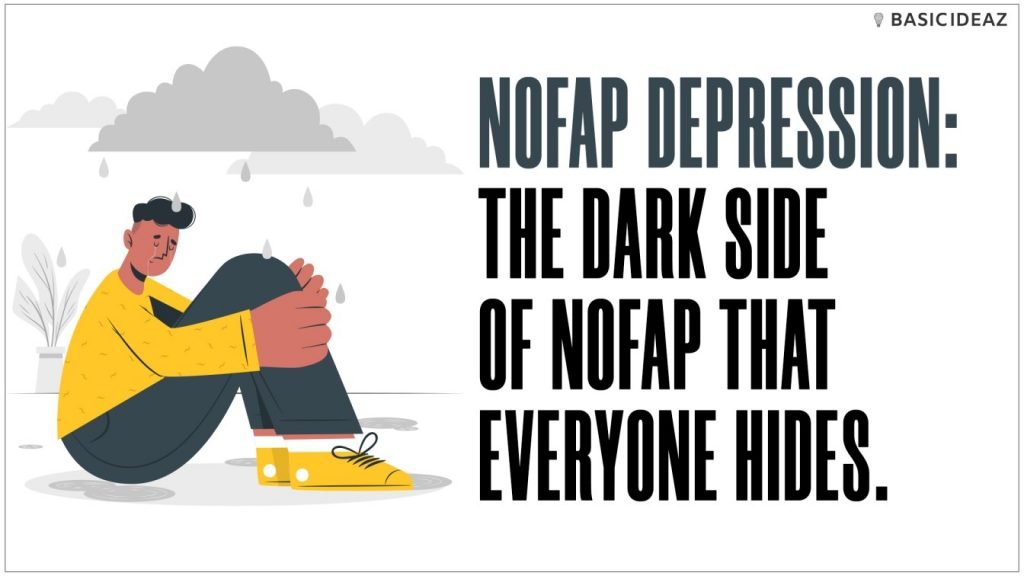The Path on Achieving Mastery- Beginner’s Guide.
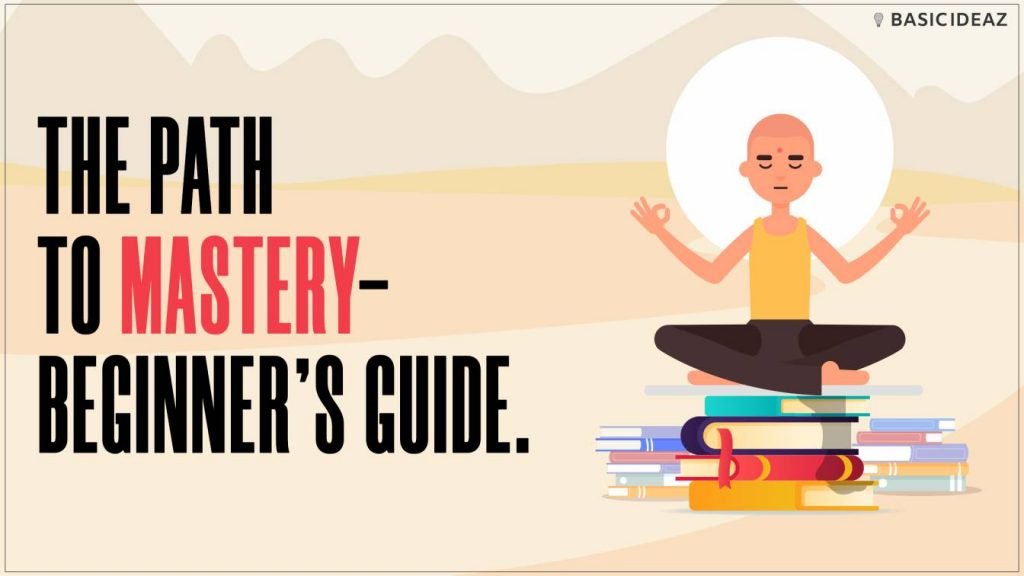
Get Quality Self Improvement Articles Every Week, No Spam, No Ads.
Thank you!
You are added to the community of Basicideaz.
Achieving Mastery
We are all masters of something.
We are masters in walking, talking, reading, or maybe eating. We are masters of understanding language.
Language comprehension is one of the most complex tasks that we perform.
It requires different types of integration to comprehend languages, such as knowledge of words, spelling, sounds, grammar, meaning, etc.
It also demands good cognitive functions such as attention, deciphering abilities, memory retrieval, etc.
If all the things work correctly, we can understand a language.
Yet, how easy it is for us to understand it.
We have achieved mastery in our language.
On the other hand, if you want to achieve mastery on something else, like a hard skill, i;e singing, playing guitar, becoming an author, becoming an athlete, or a 3d artist, it seems so difficult to achieve it.
We make goals, we plan everyday, we practice hard but still our goals on achieving mastery seems miles away.
Let me clarify something right now, which we will need over the article.
Achieving mastery is not an end goal, it is life long journey.
Before jumping on how to achieve mastery on something, we need to address something first, something very important that stops most of our generation from achieving success.
How many days more?
My friend Roy wanted to play guitar.
He took a guitar class in a nearby music school and after several days of practice, he felt like he advanced a lot.
Only after 2-3 weeks, he could play most of the chords and have learned several strumming patterns.
But, he still couldn’t play any songs yet, not with the fingering style.
He wants to make videos of playing guitar and also wants to play in front of his friends.
So, one day he asked his teacher, “how long will it take to learn the guitar?”
“Well, you have to get familiarise with the music theory, so that you can practice further, learn fingering style, different chords, basic and advanced strumming, blues, understanding the notes and barre chords.
So, I would say, like 3-5 years of consistent practice will do.” his teacher replied.
Roy’s eyes open wide, “3-5 years for guitar. But, I have heard that people can play it after only a month or two.”
“Yes, of course, you can play. You can play the songs even after one week of practice, that’s not the point. The point is how well you play.” his teacher replied calmly.
“Oh.” we can clearly see the sad face of Roy.
“Sir, isn’t there anything that can make the process faster.” Roy continued.
“If your goal is just to play in front of your friends and make videos, you can do that in a few days. But, if your goal is to play the guitar well, become a part of your life, make the guitar an identity of yours, then this transformation takes time.” his teacher’s voice sounds like reading a newspaper.
“But sir, what if I practice more. What if I practice 8-10 hours a day?” Roy’s voice seems hopeful.
“You can try, but that’s not the path to mastery, that will be a path to failure. No matter how much you try you cannot have sunrise before time.”
Roy went home that day with a confused mind.
How could this be a bad idea to practice more? In movies, TVs, etc everywhere it is shown that the more someone practices, the better they become.
But, before going to understand the practice, let’s see how the path for mastery looks like.
The path to mastery.

The above graph has been taken from the book, Mastery by George Leonard.
The rise in the path is the growth stage where we enjoy significant growth in our abilities.
You become motivated, hopeful and try to strive more to reach your goals.
On the other hand, the flat path shown in the image is known as the plateau.
A stage of learning, where all your progress seems to stop and makes you feel hopeless and lower your motivation for further practice.
You feel like you are not going anything and stuck in this plateau for good.
This is what happened with my friend, Roy.
He enjoyed the burst of progress in the first few days, but after that, his progress stopped.
He reached the stage of the plateau and nothing seemed moving according to him.
He is practicing the same ‘C’ chord for over a month now, but it doesn’t seem he is improving in it.
Moreover, his teacher didn’t teach him anything new, he is just practicing the old stuff over and over again. Why?
There is no excitement. There is no joy in playing guitar anymore.
What happened to his passion for playing guitar? What happened to the goals?
Now, coming to the classes seems like a chore to him.
So, what stops most of our generation from achieving mastery?
Immediate Gratification
It is the stage of the plateau where most of us quit. We don’t like discomfort.
We want pleasure, sometimes mistaken as happiness.
In the world of quick gratification, it becomes very difficult to cultivate patience for mastery.
We are bombarded with messages like, “Earn millions today by doing this or that”, “Getting bored? Download this app”, “Lose belly fat in 7 days”, “Improve self-confidence in 10 days”,
“Make your crush fall in love with you in four days by doing this” etc.
Besides these immediate solutions, there is immediate gratification for everything.
Here are a few examples: “You can get your food just by ordering on your phone”, “if you are bored you can play your favorite video game”, “missing someone, you can call them instantly,” “want a girlfriend, there are apps for that too” you get the point.
You can have anything you want as quickly as possible except happiness.
Happiness and pleasure are different.
Pleasure comes from our impulses.
You feel like eating pizza today. So, you ordered pizza. The excitement you get before, during, and after eating the pizza is ‘pleasure’.
On the other hand, happiness comes from our values.
If you value your work or physical fitness, working on them will create happiness in your life.
Happiness is cultivated by doing the right thing at the right time. It is not a one-time thing.
Once it is cultivated, it remains there in you, and it grows over time while pleasure disappears in an instant.
In achieving mastery, you have to be careful about immediate gratification.
No one can achieve mastery in a single day or a month or even a year.
It takes years after years of practice, mistakes after mistakes until the thing you are pursuing to master becomes an identity of yourself.
There is no shortcut in mastery.
It is the relentless practice after practice with focus and concentration that will lead to mastery.
But, how can you remain focused and concentrated all the time?
There are days when you don’t feel like getting up from bed and there are days when you wake up in an instant and start working.
Everyday is not the same for you. Some days you are productive while some days you just have to drag yourself completing a small task.
And what about the plateau?
Get Quality Self Improvement Articles Every Week, No Spam, No Ads.
Thank you!
You are added to the community of Basicideaz.
Process not Goals
If you are a goal-oriented person who constantly focuses only on his results and progress then it is most likely that you are not on the path of mastery.
Because mastery is not a destination, it is the journey itself.
People who are on the path of mastery, enjoy the path more than the destination.
Goals only give them direction, not life-long motivation.
I write everyday for my novel.
Yes, my goal is to become a novelist but that is not the reason I write everyday.
Before sitting on my chair and switching on my desktop, I prepare tea. This becomes a kind of a ritual.
After that, I write like 500-1000 words a day. While writing, I imagine the situations, circumstances and try to find more creative ways to make a scene more tense and interesting.
I love everything in these hours.
The morning sun, the chirping of birds, the imagination of my story, the sound of my keyboard, writing dialogues, writing narratives, etc.
Though every morning, I don’t feel this energy and motivation to continue my work.
But, once I start, I lose myself in the process soon.
If you are a goal-oriented person who is more focused on the outcome rather than the process, you will often get disappointed because of the plateau.
In plateau, we don’t see much progress and we start to lose hope.
When there is no progress, there will be no motivation to strive for it.
My friend Roy’s goal was to play guitar in front of his friends and make videos. While there was initial progress in his learning process, but once he was on the plateau, he started losing interest because there was no progress.
He didn’t like playing guitar, he liked playing guitar because he wanted to play in front of others.
One more example is my debate with my graphic designer.
He makes the banner for the article, as you can see on the top, and also designs pins for Pinterest.
He often tells me that his goal for the next 3 months is having 100k views in our Pinterest account.
I often tell him, getting views is not our job. It depends on the Pinterest algorithm and we cannot control the outcome.
What we can do is upload our pins everyday: The process.
Though he used to make 5-10 pins everyday in the beginning, now making one pin seems like a chore.
But how to enjoy the process?
Yes, a new goal gives us tremendous energy and motivation to pursue it because of our brain’s chemical dopamine.
But, this brain chemical is released only in new information. Once a thing gets familiar to our brain, dopamine doesn’t release.
This is the reason why you get excited about starting a new project or a start learning a new skill.
But, once you practice it everyday, your daily motivation starts to deplete. You no longer feel the initial burst of energy.
The vision of becoming a writer or a guitarist becomes blurry and it no longer motivates us to perform our task.
But this motivation is extrinsic motivation.
There is another kind of motivation that is intrinsic motivation.
Intrinsic motivation is the good feeling we feel while doing a task.
Without intrinsic motivation, it becomes very difficult to write a single word.
If I don’t enjoy the morning sun, the chirping of birds, my tea, the imagination of the situation and circumstances, etc., then I cannot write anything.
But I do enjoy it. Why?
Why some things spark our interest and some don’t is still a mystery to science but, once you find the spark, you can develop that spark into a burning passion by practice.
It means, the more you practice something at regular intervals, the more you will enjoy it.
The goals can be the initial reasons for your practice, but once you start focusing more on the process rather than the outcome, you even start to enjoy the plateau.
It doesn’t matter if you don’t feel like progressing in achieving mastery, what matters is your practice.
I have to repeat ‘process’ and ‘goals’ because understanding this mindset is very difficult for someone who is always goal-oriented throughout his life.
Once the person starts practicing everyday and focuses more on the process, the cloudiness of his understanding becomes clear.
So, what have we learned so far on achieving mastery?
- Developing patience and not dive into immediate gratification. It is only a rush in our brain, that will delay the outcome rather than having it quickly.
- Focusing on the process rather than the goals. Goals only give direction, not lifelong motivation.
- We enjoy the plateau when we focus on the process and not the results.
- To grow our intrinsic motivation, we need to practice everyday.
So, how can you practice everyday?
Small practice
If you have read my other articles, you would probably know what small practice is.
Small practice is a technique to build good habits irrespective of your motivation and willpower.
In small practice, you have to perform a very small amount of tasks that can take no longer than 3-5 minutes.
The quantity of work is so small that it demands a very low proportion of your willpower or motivation.
It can be doing two pushups or reading three pages of a book.
The idea behind the small practice is that, once you take an action to perform your work, your emotions get stirred by your action. Once your emotions stir, it will give rise to internal or intrinsic motivation.
This intrinsic motivation will lead you to additional practice.

There are so many times when we don’t feel like working out. We feel lazy and just want to lie down and eat pizza.
But, once we go to the gym or do two to three pushups, we feel good about ourselves and do more than our intentions.
Also, if you want to create a reading habit but don’t feel like reading today, just read 2-3 pages. Maybe you will read more than yesterday.
But, small practice is not as simple as it sounds.
I have written a detailed article on small practice and how to form habits. If you are interested you can visit the following link.
To achieve mastery, you need to practice consistently.
In small practice you will realize, we cannot practice consistently because we don’t feel motivated everyday.
Moreover, we cannot act against our emotions because our willpower is not that great.
But, everyone has willpower more than we need.
We just don’t know how to utilize it.
Once you know how to utilize your willpower and motivation in the above article, you will learn that your emotions don’t define you.
We can choose our actions, but not our emotions.
Moreover, our actions define us, not emotions.
Here is a secret for a successful and happy life:
There are hidden powers within us. It is so powerful that it can shape our future to anything we want.
To unleash this power we need to do only one thing.
Doing the right thing at the right time, irrespective of your emotions.
Everytime you do something right as reality demands, you will feel the power within you.
If the reality demands to file your taxes, but you don’t feel like filing it, do it anyway and check how you feel.
If the reality demands to wash your kitchen, but you are too busy watching movies, then go to the kitchen and wash irrespective of your emotions and check how you feel.
Of course, it will not be easy, but if you apply small practice in your activities, it will be.
Walking on the edges
You have to know the edges of your comfort zone.
To achieve mastery, walking on the edges of your comfort zone is necessary.
When you are enjoying the process, there will come a time when you don’t feel like doing it anymore.
It means you have reached the edges of your comfort zone.
Walking on the edges will expand your comfort zone automatically.
Let’s understand this with an example.
If you have a comfort zone of reading 10-11 pages everyday, then on the 11-12th pages you will feel discomfort to continue reading.
However, if you keep completing these 12 pages, it will become your new comfort zone.
The example above is oversimplified because the comfort zone is psychological.
Someday, you can read 10 pages, and someday you can read 40 pages.
Whatever your zone is on that day, don’t forget to reach the edges.
But, there are some who are obsessed with goals and want to achieve them as soon as possible.
My friend Roy, as mentioned above, wants to achieve mastery in guitar as soon as possible, so he wanted to practice 8 hours everyday.
But, that kind of practice will only hurt him physically and psychologically.
If his comfort zone is playing 30 minutes, then suddenly practicing 8 hours is a sure way to failure.
There is a fine line between walking on the edges and insanity.
He is a graph for the obsessive person who wants to achieve mastery:

People who are obsessive cannot tolerate the plateau.
They want results as soon as possible, forgetting that the plateau is a necessary stage of our path to mastery.
Get Quality Self Improvement Articles Every Week, No Spam, No Ads.
Thank you!
You are added to the community of Basicideaz.
Conclusion
Don’t worry if you can’t focus on the journey yet and always obsessed with your goals and results.
Keep practicing everyday with small practice and soon your mindset regarding the path and goals will change.
You will fall in love with what you do irrespective of your outcome.
You will practice more, you will achieve more and surely you will smile more.
The path to mastery will be slow at the beginning, and there will be hindrances in the path.
If your path remains smooth throughout your learning and training, then probably it is not a path to mastery.
There will be hundreds of interference everyday in the form of immediate gratification that will try to throw you away from the path, but you know what you should do.
I am not saying immediate gratification is bad. I am not saying social media, cupcakes, playing video games, sitting on the bean bags, etc are bad.
What I am saying is, try to earn your immediate gratification instead of surrendering to your impulses.
Try to make immediate gratification a deferred gratification.
Have you earned to visit your social media, have you earned enough to eat that cupcake, or have you earned enough to play video games.
Earning is not represented here only in monetary terms, but a sense of deserving.
You will know for yourself when you earn something.
Perhaps, you did finishes your homework today to play video games, or perhaps you lost two pounds to eat that cupcake and finished filing your taxes so that you can visit your social accounts.
Whatever it is, meet the demands of reality.
Best
Ahbab
